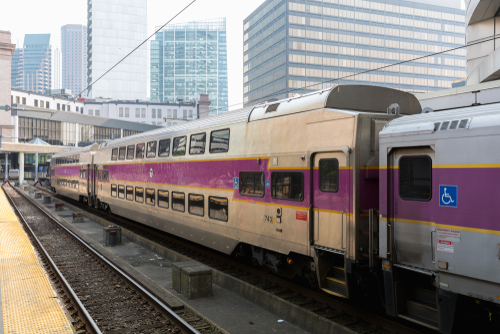
The U.S. Department of Transportation’s Federal Transit Administration (FTA) issued a new set of safety changes for the Massachusetts Bay Transportation Authority (MBTA) rail transit system following a safety inspection.
The new changes are in addition to the ones announced by the FTA in June. As outlined in a report of findings, the new Special Directives require the MBTA to address personnel deficiencies and inadequate operating conditions, police, procedures, and training that creates the agency’s safety culture. FTA also gave the Massachusetts Department of Public Utilities (DPU) a Special Directive requiring the department to improve its capacity to provide effective oversight of MBTA.
“Transit riders shouldn’t have to question whether they will get to their destinations safely,” said FTA Deputy Administrator Veronica Vanterpool. “Safety is FTA’s top priority, and our role is to hold transit agencies and state safety oversight agencies accountable on behalf of transit riders and workers.”
Special directives are those that a transit agency or oversight agency must address immediately.
As the state safety oversight agency in Massachusetts, DPU is responsible for overseeing the safety of the MBTA system. All state safety oversight agencies, the FTA said, are expected to implement their oversight programs effectively.
In a press release issued Wednesday, MBTA said that it had launched the Quality, Compliance, and Oversight Office to address the FTA’s findings. MBTA General manager Steve Poftak said the agency is in the process of addressing the report’s findings, and several of them have either been completed or are in the process of being undertaken.
Katie Choe, a 20-year veteran of construction management and safety oversight, will focus solely on launching the Quality, Compliance, and Oversight Office, which will operate outside of the agency’s organizational structure and implement actions to address the report’s findings, Poftak said.
“The MBTA’s number one priority remains safety for both our riders and our employees. We are grateful to the FTA for their recommendations as we build on numerous actions and initiatives already in place across the organization to strengthen our safety management,” Poftak said. “Under the leadership of Katie Choe, I am confident that through the Quality, Compliance, and Oversight Office, the MBTA will be better positioned to address the challenges it has faced and implement changes to the organization and system to provide a safer and more reliable T.”
The FTA identified four areas of improvement – managing the impact of operations, maintenance, and capital projects requirement on the available workforce; prioritizing safety management information; effective safety communication, and improving operating conditions and policies – and ordered the MBTA to carry out a total of 53 actions, many of which, the agency said, are either implemented or in the process of being implemented.
“The Quality, Compliance, and Oversight Office will help support the MBTA’s over 6,000 employees, from track walkers to inspectors to operators and motorpersons, by giving them the tools they need to succeed, including training, documentation, and support systems as we continue to implement the recommended actions presented in the FTA’s report,” Choe said. “I have seen first-hand, through countless New England winters, events like championship parades and in their everyday work, the perseverance, effort, and focus of the MBTA workforce, and I am confident that they will rise to the occasion again.”